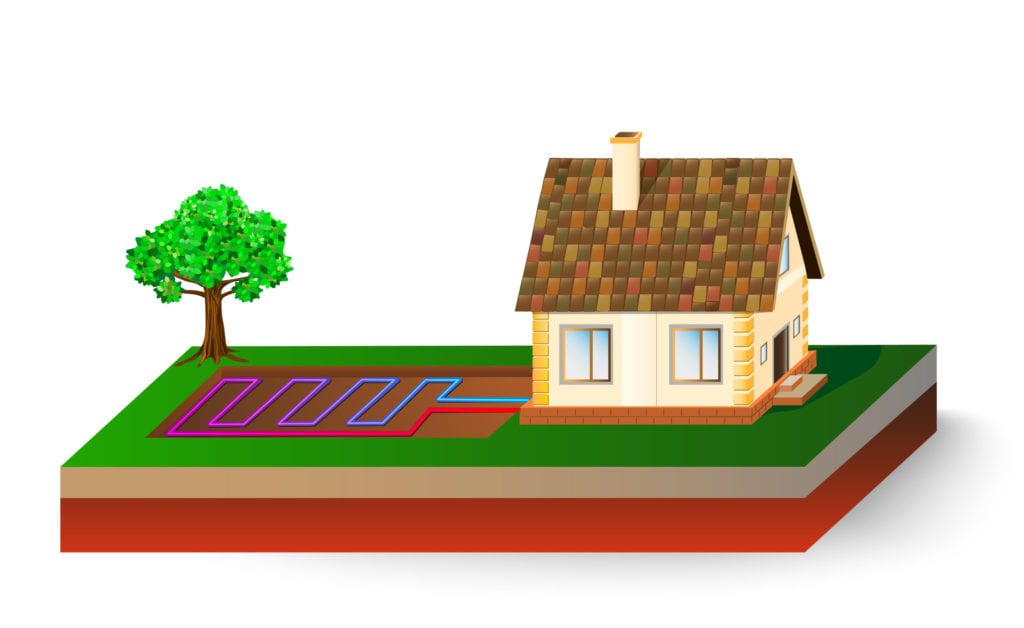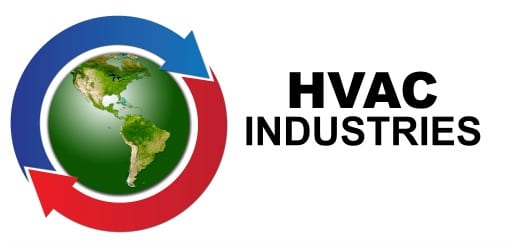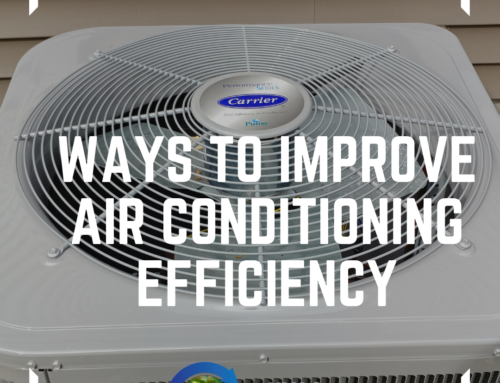 Geothermal energy has been used for thousands of years, with man making use of hot springs for baths and district heating. It wasn’t until the 1940’s that a heat pump system was successfully installed for commercial use.
Geothermal energy has been used for thousands of years, with man making use of hot springs for baths and district heating. It wasn’t until the 1940’s that a heat pump system was successfully installed for commercial use.
Since then, geothermal heating and cooling has increased significantly and is now available for homeowners.
Geothermal Fundamentals
So how does geothermal work, anyway? The basic premise is that the earth’s temperature remains essentially constant throughout the year. Using heat pumps, heat can either be taken from the earth and used to warm your home in winter, or dumped from your home into the ground in summer. In order to achieve this, several components work together. Outside, there are the horizontal
or vertical geothermal ground loop pipes for the heat transfer liquid (usually a glycol mixture). This is connected to the heat pump, which does the work of providing the right temperature to your home. Then there’s the distribution system, which may be hydronic (water-based) or an air handler.
Why Go Geothermal?
Here are five reasons to upgrade to a geothermal system:
1. You lower your energy bills because you only pay for electricity to run heat pumps. Unlike electric heat, the electricity used for a geothermal system is for running the heat pumps, which is less than that needed to provide heat directly. According to the US Environmental Protection Agency (EPA), geothermal systems can save you 30-70% of heating costs and
20-50% of your cooling costs.
2. Geothermal energy is environmentally friendly. There are no greenhouse gases as with a furnace and it’s a renewable energy source.
3. The equipment is hidden in a mechanical room, so there’s no worry about how it looks. Piping is buried in your yard and all controls, valves and piping reside in the mechanical room, out of sight. You also have the added benefit of quiet operation.
4. Heat pumps have lower maintenance costs and longer lifespans than traditional heating and cooling equipment. This saves you money in the long run, in addition to the lower utility bills.
5. Geothermal systems are safer for your family. There is no risk of carbon monoxide poisoning as with fossil fuel burning equipment.
There are some considerations when deciding to go geothermal, however. The initial cost is steep and you have to decide whether to install horizontal loops or vertical loops. The number of wells, the size of your equipment and whether you’ll want supplemental heating are all items you need to discuss with a professional.
If you think now is the time to upgrade your HVAC to a geothermal system, give us a call and we can help you make the right decision to get you started.






